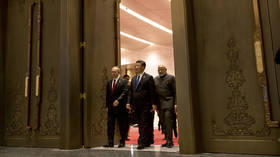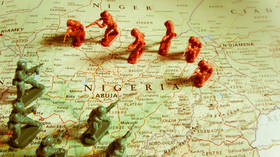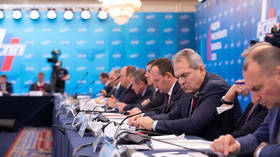Dmitry Trenin: The founder members of BRICS face a historic decision as they attempt to reshape the world order

Never has the BRICS group attracted so much interest around the world as in the run-up to the 15th leaders’ summit this week in Johannesburg.
This in itself shows the growth of the bloc's importance since its first gathering – at the level of economics ministers – on the margins of the St. Petersburg Economic Forum in 2006, and the initial proper summit in Ekaterinburg in 2009.
About 20 countries are reportedly seeking admission to the five-member organization and the list of countries that will be represented at the meeting in South Africa is three times as long. This is a sign of the times and points to two things: the yearning of many non-Western nations to become more consequential to how the world is run, and the growing pushback against self-serving Western dominance in global politics, economics, finance, and the media.
This does not mean, however, that BRICS (an acronym made up of Brazil, Russia, India, China and South Africa) will have an easy run in reshaping the world order. Ahead of the Johannesburg summit, two issues emerged as the main challenges to the group’s further evolution. One is expanding membership. A number of countries from all over the globe have lined up at BRICS' door, ready to walk in. These include Algeria, Argentina, Bangladesh, Belarus, the Democratic Republic of the Congo, Cuba, Egypt, Ethiopia, Indonesia, Iran, Kazakhstan, Nigeria, Saudi Arabia and the United Arab Emirates. Going for a big-bang enlargement would be a loud statement, to the effect that an alternative to the US-led system of alliances and partnerships is being built. However, the question is would such an expansion make a much more diversified BRICS immediately stronger or not?
Within BRICS itself, views on enlargement differ. Yet, there is a model that can prove useful. Another non-Western group, with some of the same participant states, did manage the enlargement issue without diluting effectiveness. This was the Shanghai Cooperation Organization, which started with Russia, China, and three Central Asian states. Over time, the SCO has found a formula for categories of participating countries and criteria-cum-processes for admitting new full members. The organization was able to extend its full membership to India and Pakistan, Uzbekistan and Iran, with a number of others in line for admission. If the SCO approach is adopted by BRICS, this could be a solution.
The other challenge for the bloc is coming up with new financial instruments to reduce the non-Western economies’ dependence on the dollar. Washington’s weaponization of its currency in its Hybrid War against Russia and its concurrent manipulation of trade and technology against China have made the issue urgent. Western restrictions have hampered the activities of the BRICS’ New Development Bank. Calls have been made for the group to create a common currency, to break the dollar's monopoly in world finance. Yet, it is self-evident that creating a reserve currency for five very different economies, of which China accounts for two-thirds of the combined nominal GDP of the group, will run up against the jealously guarded principle of national sovereignty. The original goal of achieving financial independence will not be met.
A more practical way would be to improve the currently growing practice of using national currencies in trade between BRICS countries. The yuan and ruble account for more than half of Sino-Russian commercial turnover; Russia accepts the rupee for the oil it ships to India; Brazil trades in yuan with China; and so on. While these transactions have the merit of being free from third-country interference, they can and do incur costs, due to the problems with convertibility of some currencies, their limited use outside the issuing country, and the instability of the exchange rate. These are the issues that need to be addressed. While a BRICS currency is still a long way off, it would make more sense to work on improving the system of international payments and settlements within the group.
BRICS is often compared to the G7. Yet, although is some ways the comparison can be justified, the two groups are fundamentally different in their ambition, structure, and evolution. The G7 is politically, economically and ideologically homogenous, while BRICS is rich in diversity on all counts; the G7 is essentially led by the United States, with the others, the ex-great powers, unquestionably accepting that leadership, whereas in BRICS, China’s economic weight does not translate into a Beijing hegemony. The G7 is globalist in the sense of seeking to project its models and morals on the rest of the world, and BRICS countries are wholly focused on their national sovereignty. At the same time, the G7 is clearly exclusive, with the West sitting clearly above the rest, while BRICS is just the opposite: it embraces the diversity of different civilizations and cultures.
The G7’s role is to preserve the old order in which the West is dominant; the BRICS members’ ambition is to build elements of a new, more diversified and better-balanced world order – first of all among themselves and then to further impact the evolution of the world system. BRICS is not an attempt to create a zero-sum alliance. It is the core of what one can call the World Majority that aims at development rather than dominance. The going will be hard and not unopposed but, with more pieces to the puzzle affixed, the foundation of a more open and inclusive world order will eventually emerge.















